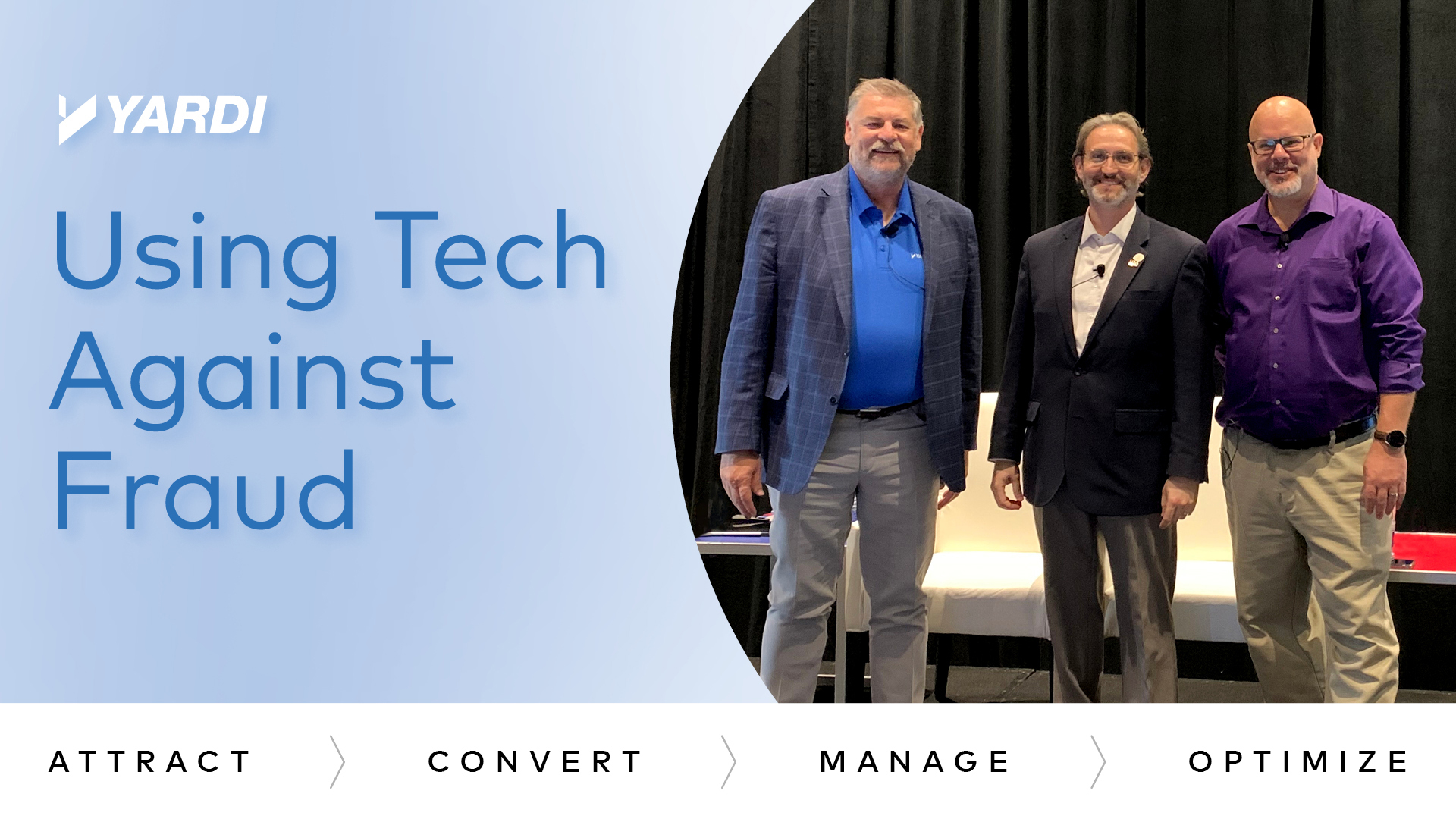Share This
Related Posts
Tags
Using Tech Against Fraud
By Vianna Mabanag on Oct 20, 2023 in Technology
How protected are you against residential applicant fraud? Could you be more secure with the right tech in place?
Yardi Vice President Michael Tuer recently discussed fraud challenges and strategies with LUMA Residential President Ian Mattingly and Wood Partners Property Applications Administrator David Searles.

From false pay stubs to fake IDs, fraud can cost businesses a fortune — but the good news is that you don’t have to rely on the naked eye to detect false documents. Read on for key takeaways including the different types of fraud, what industry experts are doing to combat it and strategies you can implement today.
Different types of fraud
There are many ways applicants can falsify their way into getting approved for your community:
- Synthetic fraud is when someone fabricates entire identities, including Social Security numbers, photos and stolen information. This type of fraud can be offered as an “approval package” online, giving people complete sets of phony documents for the application process.
- Rental application fraud is when an applicant provides incorrect or invalid information, like a falsified paystub or an altered Social Security card.
- Third-party fraud happens when an applicant misrepresents who they are by misusing another person’s identity — like an image of their driver’s license — to pass credit or criminal background checks.
The amount of fraud out there can be overwhelming, but there are many tools and strategies to deter fraudsters from the start or reduce it significantly.
Decrease fraud by leveraging AI and automation
“About 15% of our total monthly revenue could have been lost to fraud had we not put the right technology and strategy in place,” Ian Mattingly said.
Mattingly estimated that LUMA’s fraud prevention efforts over the past three years saved them between $1 million to $1.5 million per year. The Texas-based company benefitted from biometrics and AI to accelerate screening and filter out the bad actors, saving a significant amount of money along the way.
“Almost 13% of people who start our application process online stop at the biometric identity portion,” Mattingly said. “We believe the technology we put in place has helped us deter bad actors early on in the process.”
Despite adding extra steps in their application process, LUMA experienced an improvement in their net conversion ratio. According to Mattingly, “Submissions went down after implementing fraud prevention tech, but the number of folks who converted to a lease from an initial lead contact almost doubled.”
Wood Partners also used the same technology to successfully deter fraudulent attempts.
According to Searles, tech played a key role in alleviating stress and responsibility on leasing. “Tech has helped our staff gain back time. Scrutinizing documents is very time consuming and taxing on our onsite teams,” said Searles. “It’s incredible how sophisticated some of these false documents are.”
Strategies to implement today
With the right technology in place, you can potentially save millions by detecting fraud, speeding up screening and replacing manual processes with automation — making it easy and frictionless for genuine prospects to apply.
By leveraging artificial intelligence, ID Verify and Income Verification authenticates applicants’ identities and verifies incomes in seconds, giving your leasing teams more time to focus on other high-priority projects.
ID Verify and Income Verification is a seamless part of the applicant workflow, helping you reduce fraud, save more money and streamline workflows.
Want to learn how you can reduce fraud without adding friction in the application process? Watch a quick webinar or reach out to a Yardi representative.
